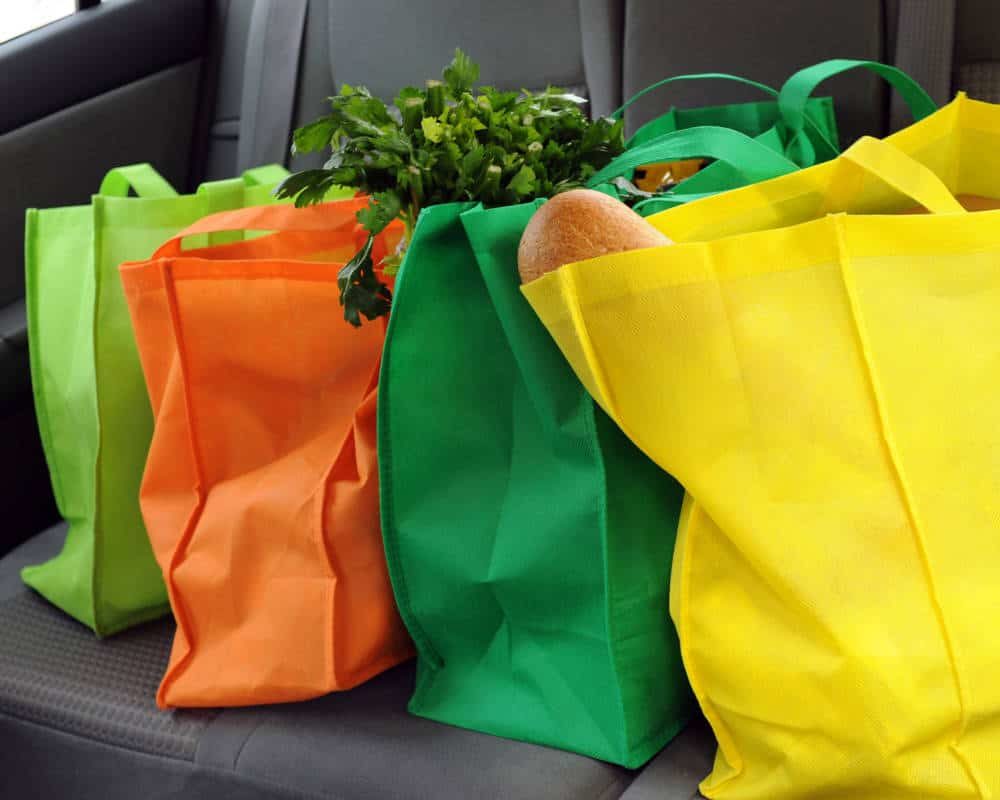However, theCDC statesthat COVID spreads via aerosolized droplets, and that it “may be possible” that someone could touch an infected surface and transfer the germs to their mouth, nose, or eyes, the virus spreads mainly from person-to-person. Based on this science, over 100 scientistssigned a letterstating: "Based on the best available science and guidance from public health professionals, it is clear that reusable systems can be used safely by employing basic hygiene." The statement notes that single-use plastics are not inherently less likely to transmit the virus than reusable bags, and that reusable bags can be disinfected, while single-use plastics create more health hazards upon disposal.
Lifting these bans doesn't mean no safety precautions are being taken: SF Environment instructedon Twitterthat shoppers should bag their own purchases, keep the reusable bags in the shopping cart, and maintain social distancing measures. California EPA spokesperson Erin Curtis told ABC7: "Before the single-use plastic bags ban, billions of bags polluted California's waterways, streets and coastlines. The governor's order in March temporarily suspended the ban as a cautionary measure to protect front-line retail workers in a time of uncertainty. With the temporary suspension now expired, California is supporting responsible actions to sustainably protect both our health and our environment."
Related: COVID-19 Diary: Retailers, in their own words about what happened. #NaturallyInformed: Advice for Retailers FMI 2020 Report Looks at Grocery Trends Pre-, During, & Post-COVID-19
San Francisco Supervisor, District 3, cheered San Francisco's decision: "Starting Monday, SF will lift its ill-advised, anti-science prohibition on reusable bags after months of advocacy from public health officials and environmental advocates," hesaid in a tweet. "This is the right result, supported by the best science."Massachusetts, too, lifted their ban, although not everyone there is happy about how it was done—CBS Bostonquoted Newton-Needham Regional Chamber President Greg Reibman: “Reinstating bags bans, effective immediately, doesn’t give business owners a chance to use up their stock of existing plastic bags or a chance to stock back up on paper bags if they need them. Even 30-60 days advance notice would have been a help. It’s bad enough that store workers have to enforce mask wearing. Requiring cashiers to be the ones who inform customers this week that they have to pay for bags again, is just cruel.”
And speaking of mask-wearing—that, too, is on a location-by-location basis. Some states, including New Jersey, require masks in all stores; some chains, including Walmart, now require all shoppers to wear masks.Grocery Dive says that Walmart has created a "health ambassador" role, to be filled in each store; these employees will work with customers who come in without face masks to try and find a solution. TheDivenotes that Costco, Best Buy, and The Fresh Market also require shoppers to wear masks.
There is, unfortunately, little to no standardization of rules and regulations covering masks, reusable bags, or the handling of customers who refuse to follow those rules. The best advice, then, is to keep an eye on local laws as well as federal laws, and train your employees on the best way to convey those regulations to customers.










